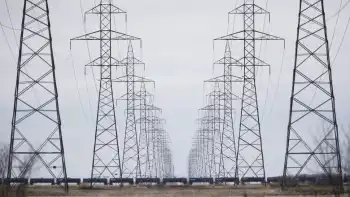Cheaper electricity rate for customers on First Nations not allowed, Manitoba appeal court rules

Arc Flash Training CSA Z462 - Electrical Safety Essentials
Our customized live online or in‑person group training can be delivered to your staff at your location.

- Live Online
- 6 hours Instructor-led
- Group Training Available
Manitoba Hydro Court Ruling affirms the Public Utilities Board exceeded its jurisdiction by ordering a First Nations rate class, overturning an electricity rates appeal tied to geography, poverty, and regulatory authority in Manitoba.
Key Points
A decision holding the PUB lacked authority to create a First Nations rate class, restoring uniform electricity pricing.
✅ Court says PUB exceeded jurisdiction creating on-reserve rate
✅ Equalized electricity pricing reaffirmed across Manitoba
✅ Geography, not poverty, found decisive in unlawful rate class
Manitoba Hydro was wrongly forced to create a new rate class for electricity customers living on First Nations, the Manitoba Court of Appeal has ruled.
The court decided the Public Utilities Board "exceeded its jurisdiction" by mandating Indigenous customers on First Nations could have a different electricity rate from other Manitobans.
The board made the order in 2018, which exempted those customers from the general rate increase that year of 3.6 per cent.
"The directive constituted the creation and implementation of general social policy, an area outside of the PUB's jurisdiction and encroaching into areas that are better suited to the federal and provincial government," says the decision, which was released Tuesday.
Hydro's appeal of the PUB's decision went to court earlier this year.
At the time, the Crown corporation acknowledged many Indigenous people on First Nations live in poverty, but it argued the Public Utilities Board was overstepping its authority in trying to address the issue by creating a new rate class.
It also argued it was against provincial law to charge different rates in different areas of the province.
The PUB, however, insisted that legislation gives it the right to decide which factors are relevant when considering electricity prices, such as social issues.
Special Manitoba Hydro rate class needed to offset challenges of living on First Nations, appeal court hears
Manitoba Hydro can appeal order to create special First Nation rate
The board had heard evidence that some customers were making "unacceptable" sacrifices to keep the lights on each month.
Decision 'heavy-handed': AMC
The Assembly of Manitoba Chiefs, an intervener in the appeal, had backed the utility board's position. It said on-reserve customers are disproportionately vulnerable to rate hikes over time.
Grand Chief Arlen Dumas said Wednesday he was surprised by the court's ruling.
He argued Indigenous people are unduly excluded in the setting of electricity rates in Manitoba.
"I will be speaking with my federal and provincial counterparts on how we deal with this issue, because I think it's the wrong [decision]. It's heavy-handed and we need to address it."
The appeal court judges said there is past precedent for setting equal electricity rates, regardless of where customers live. Legislation to that effect was made in the early 2000s and a few years ago, the PUB recognized that geographical limitations should not be imposed on a class of customers.
Since the board's new order didn't extend the same savings to First Nations members who don't live on reserve but face similar financial circumstances, it is clear the deciding factor was geography, rather than poverty or treaty status, the judges said.
Manitoba Hydro temporarily cutting 200 jobs, many of them front-line workers
"In my view, the PUB erred in law when it created an on-reserve class based solely on a geographic region of the province in which customers are located," the decision read.
While Manitoba Hydro objected to the PUB's order in 2018, it still devoted money to create the new customer class.
Spokesperson Bruce Owen said the utility is still studying the impact of the court's decision, but it appreciates the ruling.
"We all recognize that many people on First Nations have challenges, but our argument was solely on whether or not the PUB had the authority to create a special rate class based on where people live."
Owen added that Hydro recognizes electricity rates can be a hardship on individuals facing poverty. He said those considerations are part of the discussions the corporation has with the utilities board.











